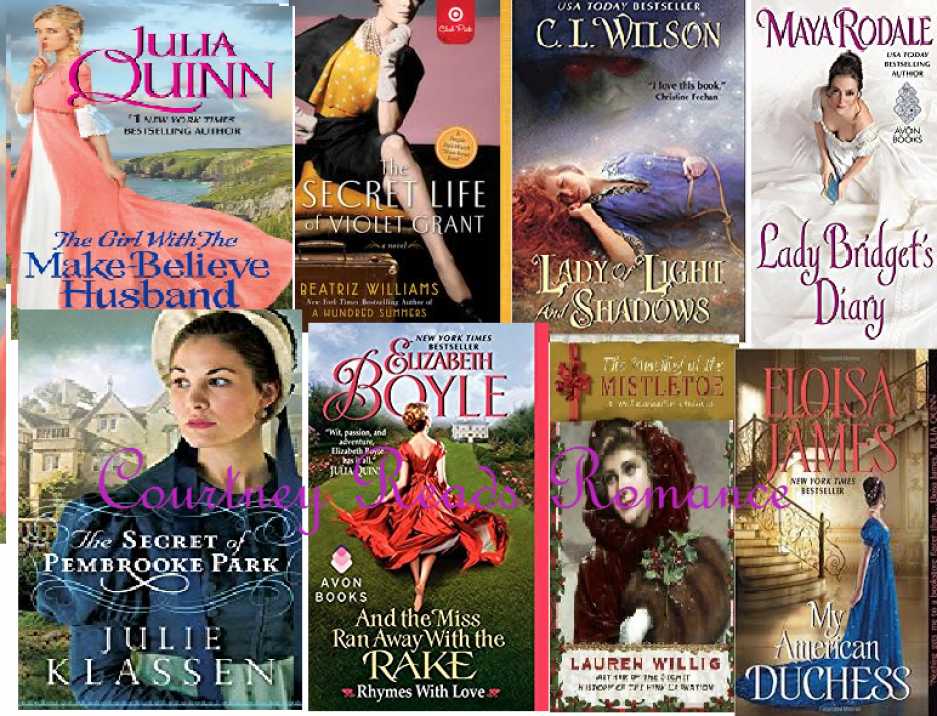Griep, Michelle, et. al. The Regency Brides Collection. Uhrichville, OH: Barbour Publishing, 2017. ISBN-13: ISBN-13: 978-1-68322-371. $14.99 USD.
After a number of years of issuing collections with various other themes and settings, I was excited when I found out that Barbour Publishing was finally doing a Regency collection. And while, like many anthologies, it is a little uneven in terms of the quality, this one is definitely better than most in that respect, providing, for the most part, romances fans of both faith-based fiction and general fiction will love.
First Comes Marriage by Amanda Barratt
5 stars
The first story by Amanda Barratt manages to convey a relationship that starts off contentiously, and show that, with the benefit of years and maturity, as well as a greater understanding of one another, a couple thrust into marriage can fall in love. While sometimes the length does not allow for many challenges to a couple’s happiness, Barratt manages the space she is given well, showing Charity and Luke’s building relationship, and has their relationship tested when a man from her past comes back and causes havoc once again.
Masquerade Melody by Angela Bell
4.5 stars
The wining streak continues with Angela Bell’s story which presents the realities of people in that time period, such as the fate of unmarried women forced to depend on their more distant relatives for support after their parents die, and the effects war can have on those who fought. The latter is presented in contrast with the excesses of the Prince Regent in Brighton, especially as he attributes the victories in the Napoleonic Wars to himself. While the presence of Adelaide’s somewhat stereotypically awful cousin does hinder the story slightly, for the most part both Adelaide and Walter are wonderful characters, and their story is a great one.
Three Little Matchmakers by Susanne Dietze
5 stars
This story was probably my favorite in the collection, mostly due to the fact that it had children in an active role, and they quickly endeared themselves to me, as they often do. And while Henry is a hero is of a type we’ve seen before, in that he is another aristocrat who had a heartless father, Dietze inspires us to feel for him, rooting for him to find love with Caroline, with whom he had long been friends, while also depicting his doubt as to whether he is fit to be a husband and father, due to his fear of becoming like his father. So, it was especially rewarding at the end to see them all become a family at the end.
The Gentleman Smuggler’s Lady by Michele Griep
3 stars
This one was one of my least favorite. While the premise seemed promising, it did not seem engaging, and doesn’t really seem to go anywhere, especially in terms of any real resolution to the plot with the main antagonist. Also, I did not feel like the romance aspect was all that well-done, although the characters themselves were interesting. I did like that Isaac was engaged in smuggling for a good reason, and not out of bad intent, and that Helen cared for her father, but I wasn’t sure that they made a lot of sense together.
When I Saw His Face by Nancy Moser
5 stars
Another favorite in the collection, I liked that Moser’s novella had a sense of the mystery as to who the heroine would end up with, at least initially, keeping the focus entirely on her. And while it is increasingly obvious who Esther’s true love is after we’ve met him, this sense of anticipation as to who she’ll end up with, presenting a nice change from what we commonly see today with dual POV stories. And Moser also makes good use of the space she is given to develop Esther and Henry’s relationship, showing their similarities in their pursuit of intellect and their belief in women’s right to education, contrasting with the simpler beliefs of Esther’s other suitor.
The Highwayman’s Bargain by MaryLu Tyndall
4.5 stars
While other stories in this collection reference and allude to Austen in some respects, this is the one in which the comparison is most obvious, with parallels to Persuasion. Both Sophia and Nash are wonderful characters. Sophia is willing to sacrifice herself to support her family, and while some people would be repulsed upon first finding out about her intended’s true self, she still intends to go through with it out of love for her family. But it is wonderful to see her change and realize that money isn’t as important as love…even though, of course, things work out in that respect anyway. And while the reveal at the end does feel a almost cliche, given that that it was almost an afterthought, with the story pushing a “love over money” moral, I cannot criticize it too much.
Jamie Ever After by Erica Vetsch
2.5 stars
This is one of my least favorites in the collection, although it isn’t a bad story. Most of the good things about it are due to the hero being well-written. William is an immediately interesting character, a injured and scarred in the Napoleonic Wars. While he does have a bit of an inferiority complex, due to his betrothed breaking things off and telling him no one would have him, his charm comes from his love of animals, which plays a significant part. And later, I found myself moved by the way he was affected by what he had gone through.
However, I found the inappropriately named Jamie rather bland. Aside from any historical accuracy issues involving her name, I just didn’t find her all that interesting, And while I like stories where a girl falls in love with her best friend’s brother, and did genuinely feel like they worked well together, but I felt she could have been better-drawn if given a longer book.











